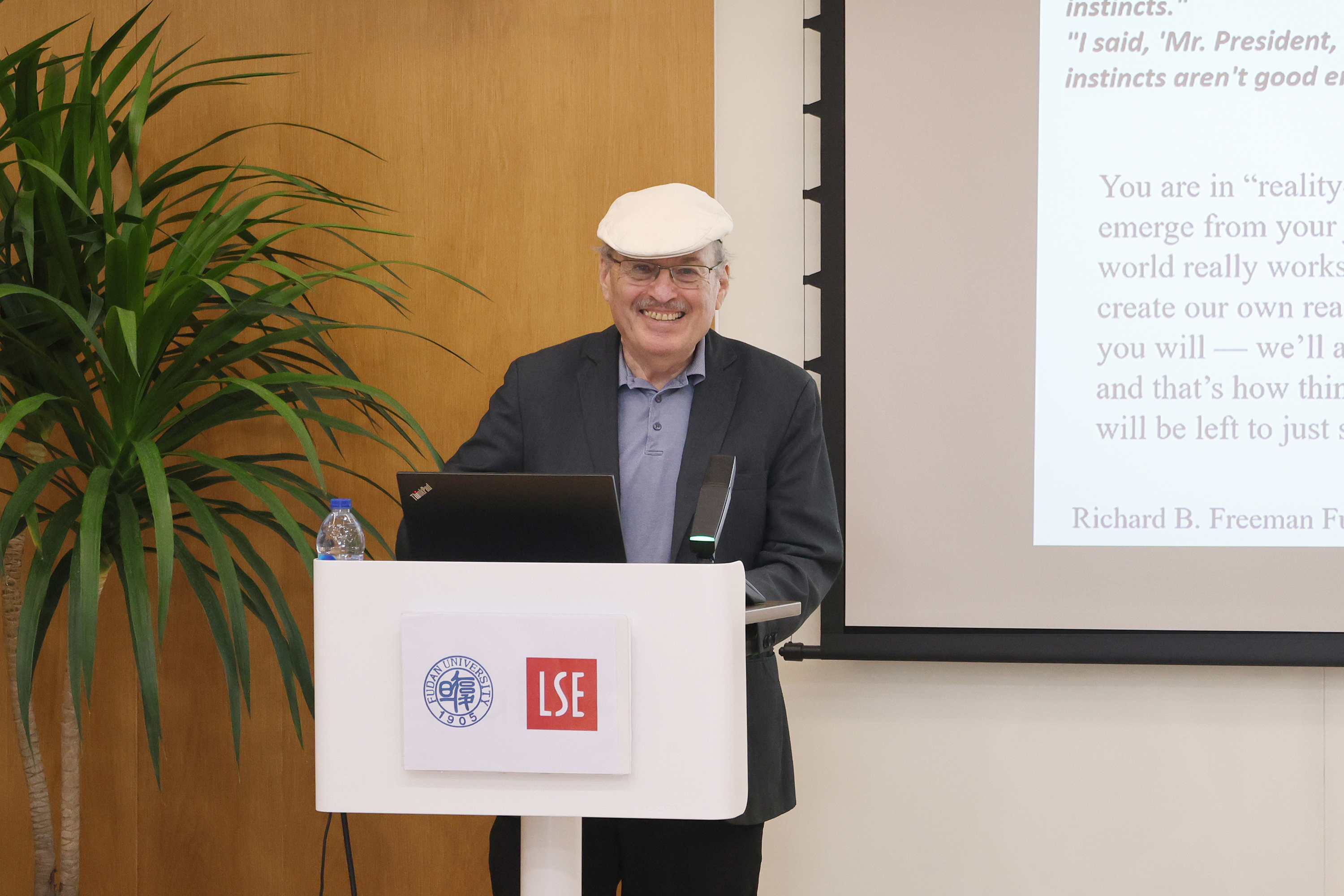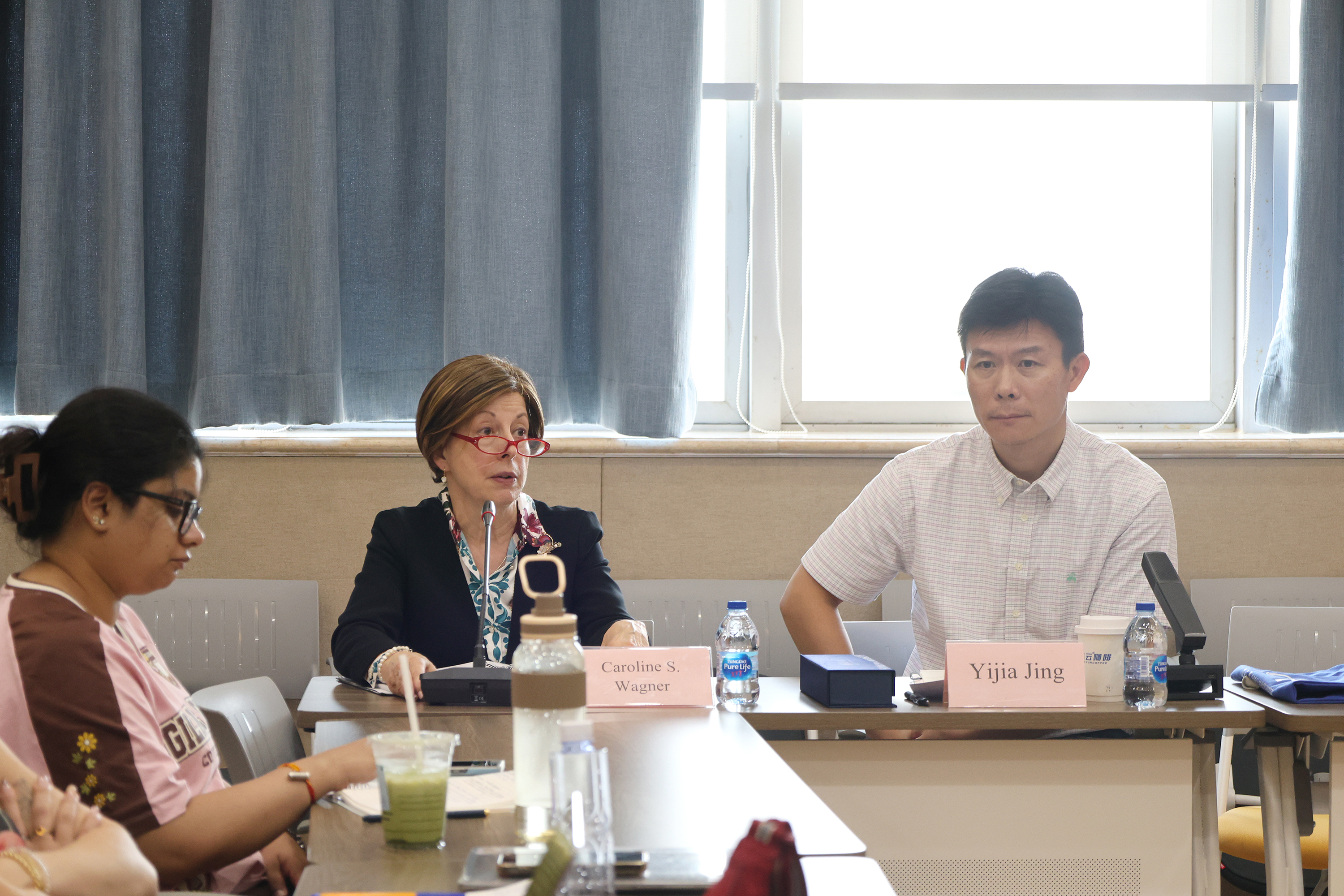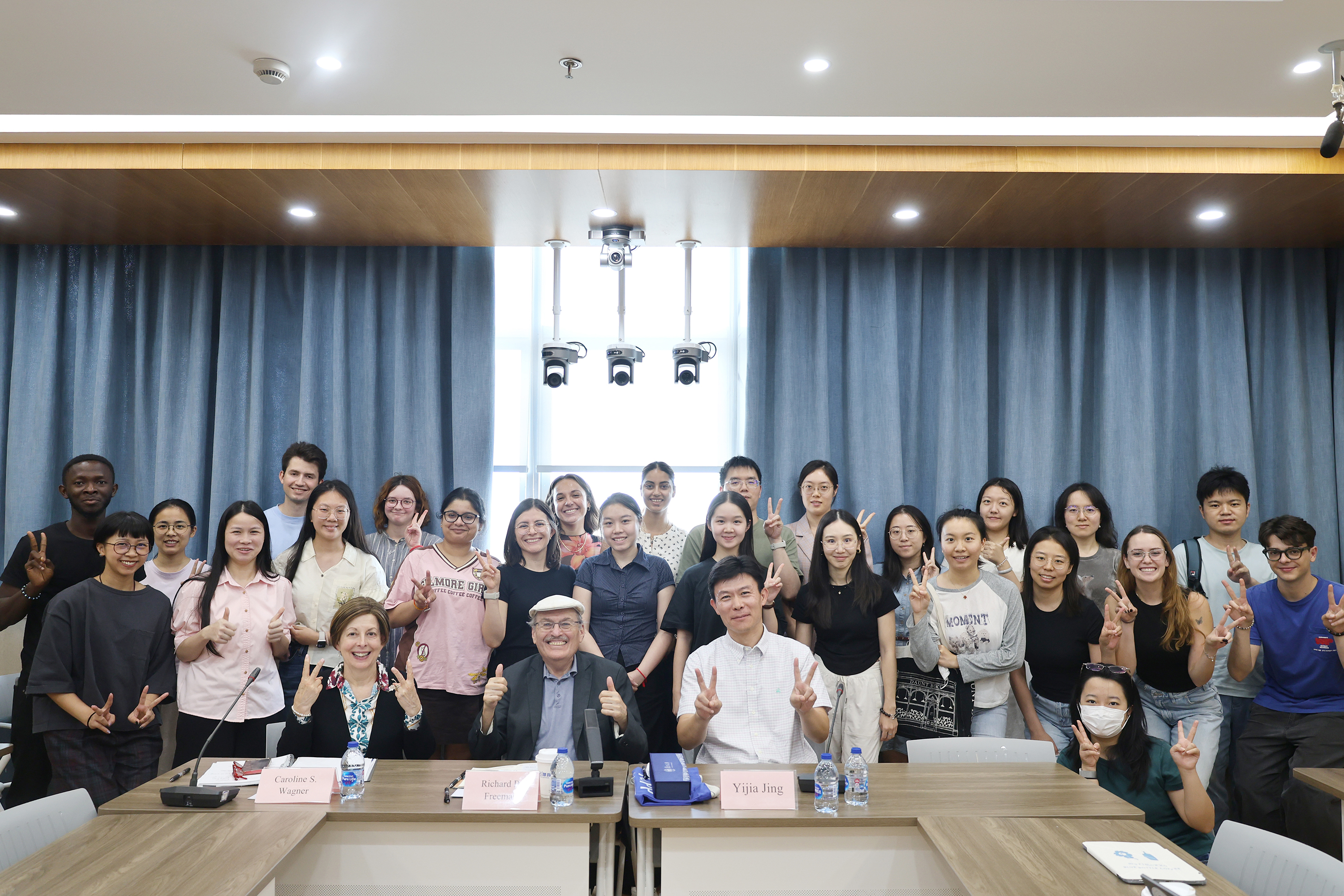Events



On September 19, 2025, the Fudan Institute for Global Public Policy (IGPP) organized the 81st lecture of the Fudan-LSE Lecture Series. Professor Richard Freeman from Harvard University delivered a lecture on the theme of Evidence-based Behavior and Policy in a World of Disinformation. The session was chaired by Dean Yijia Jing of IGPP. Professor Caroline Wagner from the Ohio State University serves as the discussant.

Professor Freeman holds the Herbert Ascherman Chair in Economics at Harvard University. He is a Research Associate at the National Bureau of Economic Research, and Faculty Co-Director of the Center for Labor and a Just Economy at the Harvard Law School. He received multiple honorable prizes. In 2016, he was named a Distinguished Fellow of the American Economic Association.
At the beginning of the lecture, Professor Freeman approached the topic from the perspective of U.S. political discourse, noting that evidence-based policy is increasingly challenged by “intuition” and “emotional” decision-making. He illustrated this by citing instances where U.S. presidents emphasized “gut feeling” over empirical evidence in policy statements. Against a backdrop of misinformation and scientific uncertainty, policymakers often downplay or even ignore the importance of evidence. This conflict between rational analysis and instinctive judgment reflects the contemporary societal knowledge dilemma.
Professor Freeman then drew on the “architecture of ignorance” theory to analyze the role of information technology and social media in the spread of misinformation. He highlighted how online communities reinforce “alternative facts,” undermining scientific consensus. Traditional reliance on expert consensus or complex theoretical arguments often fails to persuade the public, calling for more inclusive and persuasive approaches to science communication. Professor Freeman explained this from both epistemological and economic perspectives. Epistemlogically, group knowledge formation in social media is heavily influenced by opinion leaders and information diffusion. Economically, some persistent misconceptions may provide short-term benefits to certain groups, but evidence-based societies are more competitive and sustainable in the long run. He urged academia, media, and the public to work together to safeguard the role of reason and evidence in policymaking.

Professor Wagner provided comments from the perspective of decision-making under deep uncertainty. She emphasized that policy responses to frontier technologies often rely on assumptions about future developments, which may be biased or fail. Professor Jing added that China should further increase investment in basic research and explore multinational collaboration mechanisms involving major economies. Professor Freeman responded that China has advantages in manufacturing and research, with potential to play a larger role in basic science. He also suggested that joint public research funding by multiple countries could provide new pathways to address global challenges.
During Q&A session, students raised questions about topics including the impact of information technology on misinformation. Professor Freeman highlighted that cultivating audiences with a strong demand for objective facts may be key to countering misinformation. When human emotion and experience are considered, economic interests often outweigh evidence-based recommendations.

After the lecture, Professor Jing presented a commemorative gift to Professor Freeman. The event concluded with a group photo of the faculty and students.